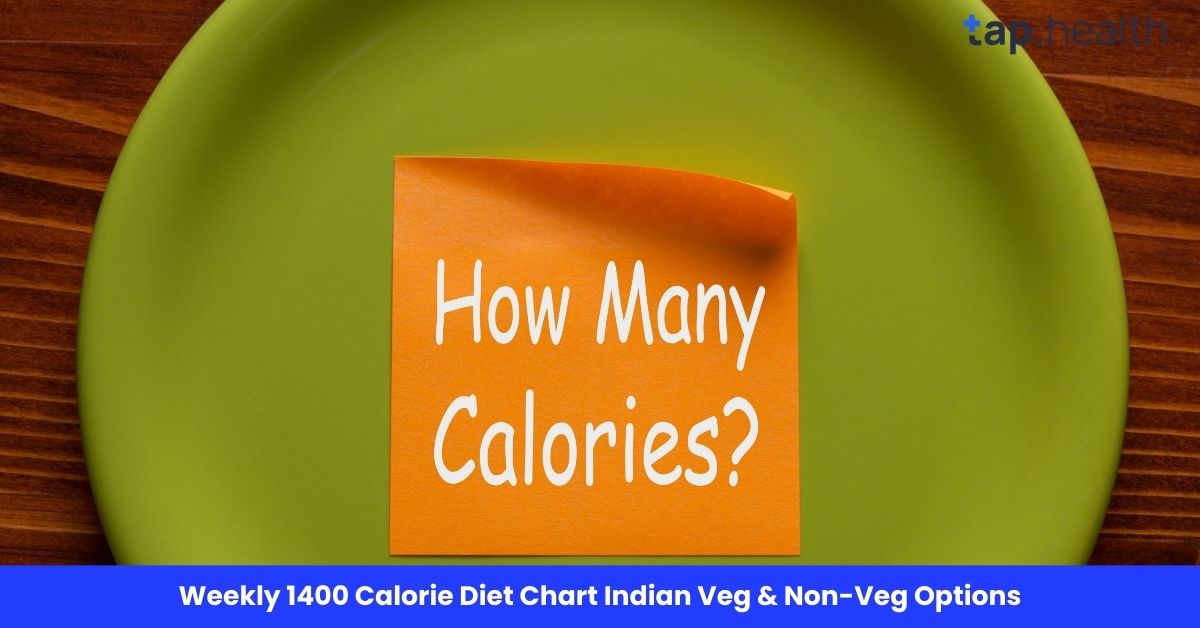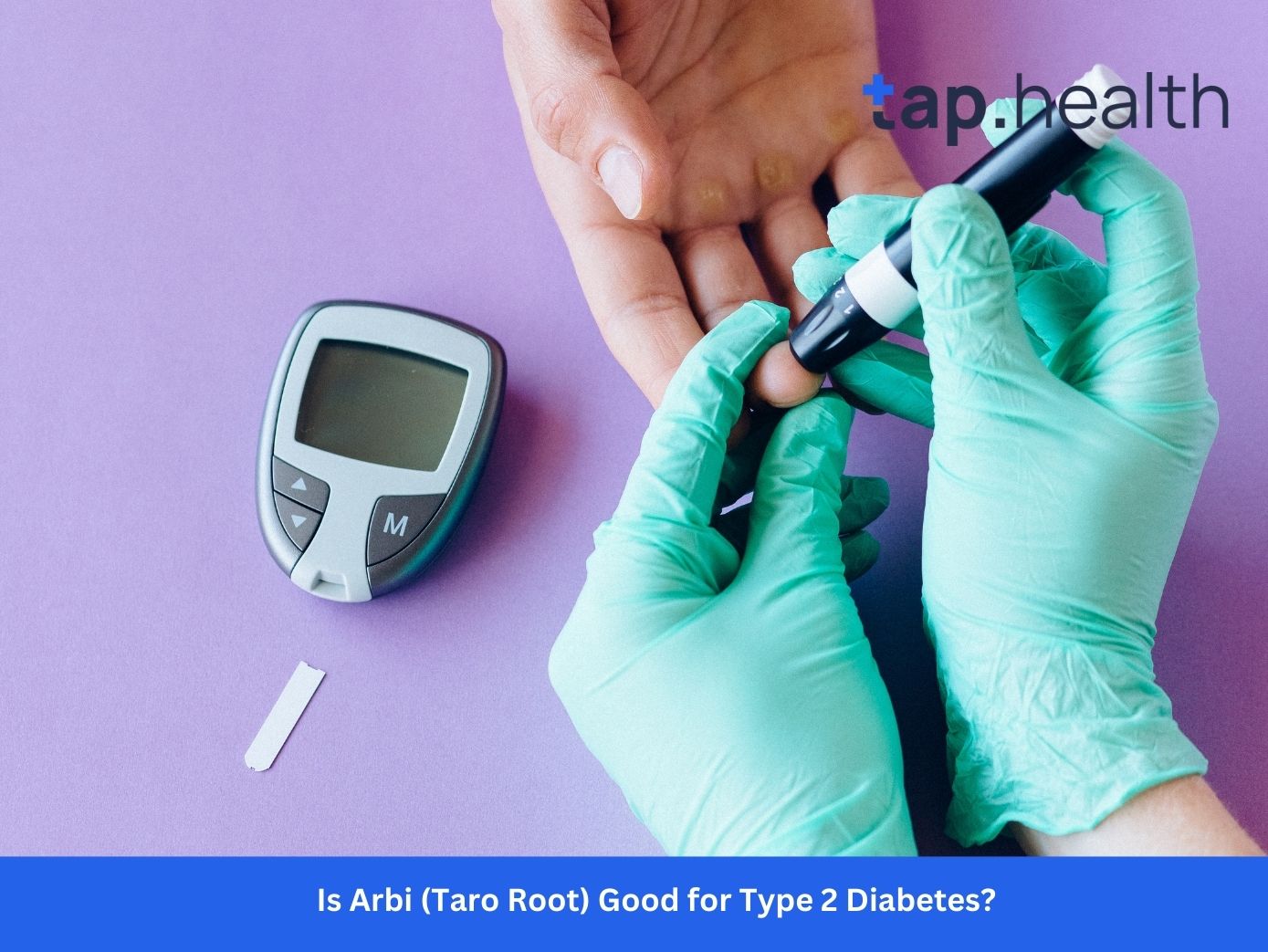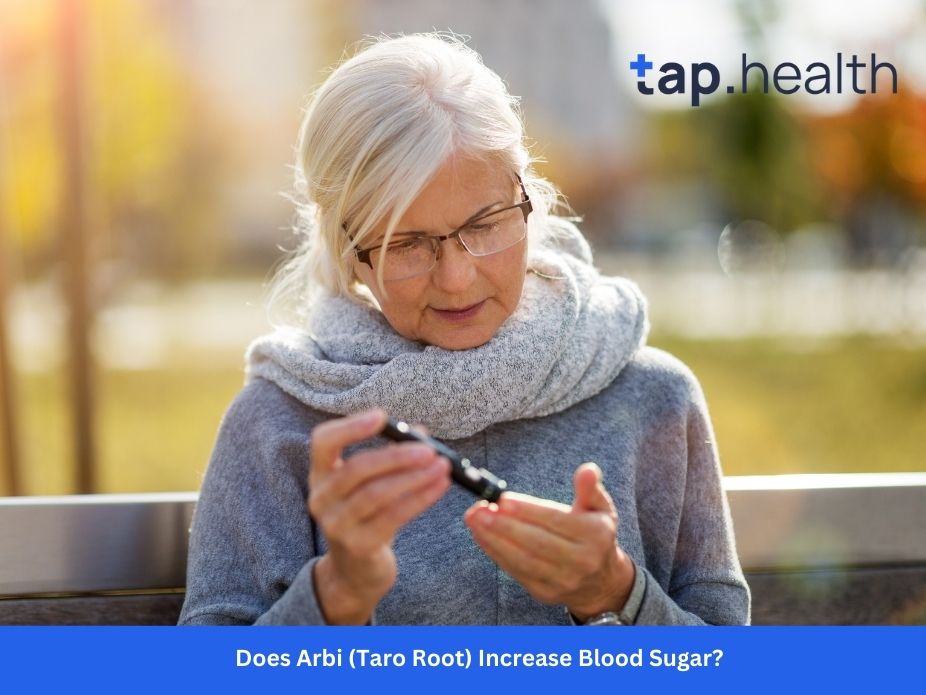A 1400-calorie diet is an effective way to manage weight and promote fat loss. However, achieving this while maintaining balanced nutrition is crucial. If you’re looking for an Indian meal plan, you can easily incorporate both vegetarian and non-vegetarian options to suit your preferences, ensuring you stay within your calorie limit while enjoying delicious, nutritious food.
In this article, we’ve provided a 7-day Indian diet chart with vegetarian and non-vegetarian options for each meal. This will help you create a balanced, nutrient-dense meal plan while ensuring you stay within your 1400-calorie goal.
Key Principles for a 1400-Calorie Indian Diet
To make the most of your 1400-calorie diet:
- Balanced Meals: Ensure each meal includes protein, healthy fats, and complex carbs.
- Portion Control: Stick to proper portion sizes to avoid exceeding your calorie target.
- Whole Foods: Focus on whole grains, vegetables, lean proteins, and healthy fats.
- Avoid Processed Foods: Reduce processed snacks, sugary drinks, and excessive oils or ghee.
7-Day 1400 Calorie Indian Meal Plan
Day 1 – 1400 Calorie Indian Meal Plan
Breakfast (350 Calories)
- Vegetarian: 1 small bowl of oats with almond milk, topped with 1 tablespoon chia seeds (150 calories)
- Non-Veg: 1 boiled egg (70 calories), 1 small bowl of oats with milk (150 calories)
- Drink: 1 cup green tea (5 calories)
Mid-Morning Snack (100 Calories)
- Vegetarian: 1 small handful of almonds (100 calories)
- Non-Veg: 1 small handful of walnuts (100 calories)
Lunch (400 Calories)
- Vegetarian: 1 small bowl of dal (lentils) (150 calories), 1 small whole wheat roti (80 calories), 1 small serving of vegetable curry (spinach, carrots, peas) (100 calories), 1 small cucumber salad (50 calories)
- Non-Veg: 1 small serving of grilled chicken (200 calories), 1 small whole wheat roti (80 calories), 1 small serving of mixed vegetable curry (100 calories)
Afternoon Snack (100 Calories)
- Vegetarian: 1 small cup of Greek yogurt (unsweetened) (100 calories)
- Non-Veg: 1 small boiled egg (70 calories), 1 small apple (30 calories)
Dinner (450 Calories)
- Vegetarian: 1 small serving of grilled paneer (200 calories), 1 small serving of brown rice (150 calories), 1 small sautéed spinach (50 calories), 1 teaspoon olive oil for cooking (50 calories)
- Non-Veg: 1 small serving of grilled fish (200 calories), 1 small serving of quinoa (150 calories), 1 small mixed vegetable stir-fry (100 calories)
Day 2 – 1400 Calorie Indian Meal Plan
Breakfast (350 Calories)
- Vegetarian: 1 small bowl of poha with peas and peanuts (150 calories)
- Non-Veg: 1 boiled egg (70 calories), 1 small bowl of poha with peas and peanuts (150 calories)
- Drink: 1 cup herbal tea (5 calories)
Mid-Morning Snack (100 Calories)
- Vegetarian: 1 small handful of mixed nuts (100 calories)
- Non-Veg: 1 small handful of almonds (100 calories)
Lunch (400 Calories)
- Vegetarian: 1 small bowl of chickpea curry (chole) (150 calories), 1 small whole wheat roti (80 calories), 1 small cucumber and tomato salad (50 calories), 1 teaspoon olive oil for dressing (50 calories)
- Non-Veg: 1 small serving of grilled chicken (200 calories), 1 small whole wheat roti (80 calories), 1 small vegetable salad (50 calories)
Afternoon Snack (100 Calories)
- Vegetarian: 1 small cup of Greek yogurt (unsweetened) (100 calories)
- Non-Veg: 1 small boiled egg (70 calories), 1 small apple (30 calories)
Dinner (450 Calories)
- Vegetarian: 1 small serving of grilled tofu (150 calories), 1 small serving of quinoa (150 calories), 1 small mixed vegetable stir-fry (100 calories), 1 teaspoon olive oil (50 calories)
- Non-Veg: 1 small serving of grilled fish (200 calories), 1 small serving of brown rice (150 calories), 1 small sautéed broccoli (50 calories)
Day 3 – 1400 Calorie Indian Meal Plan
Breakfast (350 Calories)
- Vegetarian: 1 small bowl of ragi porridge with almond milk (150 calories)
- Non-Veg: 1 boiled egg (70 calories), 1 small bowl of ragi porridge with almond milk (150 calories)
- Drink: 1 cup green tea (5 calories)
Mid-Morning Snack (100 Calories)
- Vegetarian: 1 small handful of almonds (100 calories)
- Non-Veg: 1 small handful of walnuts (100 calories)
Lunch (400 Calories)
- Vegetarian: 1 small bowl of moong dal (150 calories), 1 small whole wheat roti (80 calories), 1 small serving of mixed vegetable curry (100 calories), 1 small cucumber salad (50 calories)
- Non-Veg: 1 small serving of grilled chicken (200 calories), 1 small whole wheat roti (80 calories), 1 small vegetable curry (100 calories)
Afternoon Snack (100 Calories)
- Vegetarian: 1 small apple (80 calories), 1 tablespoon peanut butter (20 calories)
- Non-Veg: 1 small boiled egg (70 calories), 1 small orange (30 calories)
Dinner (450 Calories)
- Vegetarian: 1 small serving of grilled paneer (200 calories), 1 small serving of quinoa (150 calories), 1 small side of sautéed spinach (50 calories), 1 teaspoon olive oil (50 calories)
- Non-Veg: 1 small serving of grilled fish (200 calories), 1 small serving of quinoa (150 calories), 1 small mixed vegetable stir-fry (100 calories)
Day 4-7
Repeat the pattern from the first three days, making sure to incorporate a variety of vegetables, protein sources like paneer, lentils, tofu, or chicken, and healthy carbs like brown rice, quinoa, and millets.
You can also swap ingredients for variety, such as using chickpeas, black beans, or tofu for vegetarian sources of protein and fish, chicken, or eggs for non-vegetarian options. For your vegetable options, feel free to use cauliflower, broccoli, zucchini, and carrots for added nutrients.
General Tips for Sticking to a 1400-Calorie Diet:
- Stay Hydrated: Drink plenty of water throughout the day. Herbal teas and lemon water can also help curb appetite.
- Exercise: Combine your calorie-controlled diet with a fitness routine that includes both strength training and cardio to boost fat loss.
- Meal Prep: Planning and prepping meals ahead of time ensures that you stick to your calorie goals and avoid impulsive eating.
- Mindful Eating: Eat slowly and focus on your food. This helps you recognize when you’re full and avoid overeating.
Real-Life Scenario
A 32-year-old office worker struggling with weight gain decided to follow a 1400-calorie Indian diet plan. Within 8 weeks, she lost 5 kg without feeling starved. She alternated between vegetarian and non-vegetarian days, which helped her stick to the plan without boredom.
Expert Contribution
Dietitians suggest that a 1400-calorie plan works best for women aiming for gradual weight loss, while men may need slightly higher calories depending on activity levels. Experts recommend:
- Balancing each meal with protein, fiber, and healthy carbs.
- Avoiding fried snacks, processed foods, and sugary drinks.
- Drinking plenty of water and staying active.
Recommendations Grounded in Proven Research and Facts
- Include protein in every meal: Helps with satiety and muscle maintenance.
- Choose complex carbs: Whole wheat, brown rice, and oats over refined carbs.
- Don’t skip meals: Skipping can lead to overeating later.
- Portion control matters: Even healthy foods can add up in calories.
- Stay active: At least 30 minutes of exercise per day boosts results.
Conclusion
A 1400-calorie diet is an effective way to lose weight while still eating tasty and nutritious Indian meals. By following this 7-day meal plan with vegetarian and non-vegetarian options, you can enjoy a variety of foods without feeling deprived. Ensure you balance your macronutrients, incorporate plenty of vegetables, and stick to portion control for the best results.
FAQs: 1400 Calorie Indian Diet Plan (Veg & Non-Veg Options)
1. Can I lose weight with a 1400-calorie diet?
Yes, a 1400-calorie diet creates a caloric deficit, which is essential for weight loss. If your daily caloric expenditure is higher than 1400 calories, you will lose weight gradually. Make sure to combine the diet with regular physical activity for the best results.
2. Is a 1400-calorie diet safe for everyone?
A 1400-calorie diet can be safe for most adults, but it depends on individual factors like age, activity level, and health status. If you are very active, or have specific health concerns (such as pregnancy or a medical condition), it is essential to consult a doctor or nutritionist before starting any calorie-restricted diet.
3. Can I follow a 1400-calorie vegetarian diet plan for fat loss?
Yes, you can achieve fat loss with a vegetarian 1400-calorie diet. The key is to focus on protein-rich foods like lentils, chickpeas, tofu, and paneer, while also including whole grains, vegetables, and healthy fats for a balanced diet.
4. What are the best protein sources for a vegetarian 1400-calorie diet?
For a vegetarian 1400-calorie diet, some excellent protein sources include:
- Lentils (dal)
- Chickpeas (chole)
- Tofu
- Paneer
- Greek yogurt (unsweetened)
- Almonds, peanut butter, and seeds like chia and flaxseeds
5. How can I avoid feeling hungry on a 1400-calorie diet?
To prevent hunger on a 1400-calorie diet, focus on high-protein, fiber-rich foods, and healthy fats that will keep you full longer. Drink plenty of water and green tea throughout the day to curb hunger. Additionally, eating smaller, frequent meals and snacks can help manage your appetite.
6. How do I balance my calories in a non-vegetarian 1400-calorie diet?
In a non-vegetarian 1400-calorie diet, balance is key. Make sure to include:
- Lean proteins like chicken, fish, and eggs.
- Complex carbohydrates like brown rice, quinoa, and whole wheat roti.
- Healthy fats like olive oil, avocados, and nuts.
You can adjust the portion sizes of protein, carbs, and vegetables to stay within the calorie target.
7. Can I follow the 1400-calorie diet plan without feeling deprived?
Yes, the 1400-calorie diet plan includes satisfying meals with balanced macronutrients. By incorporating fiber-rich vegetables, protein, and healthy fats, you’ll feel full and nourished while still achieving your fat loss goals. The key is portion control and meal variety to avoid monotony.
8. How quickly can I expect to see weight loss on a 1400-calorie diet?
The speed of weight loss depends on your individual metabolism, exercise routine, and adherence to the diet. On average, healthy weight loss is about 0.5 to 1 kg per week. If you’re consistent with your 1400-calorie diet and exercise routine, you should start seeing visible results in 2-4 weeks.
9. Can I combine the 1400-calorie diet with exercise?
Yes, combining a 1400-calorie diet with regular exercise can accelerate fat loss and help you maintain muscle mass. Focus on a mix of strength training and cardio exercises to ensure optimal results. Remember to adjust your caloric intake if you increase your activity level, as more intense exercise may require additional calories.
10. How do I ensure I’m getting enough nutrients on a 1400-calorie diet?
To ensure you get all the necessary nutrients, focus on nutrient-dense foods such as:
- Leafy greens like spinach and kale
- Whole grains like brown rice, quinoa, and millets
- Legumes like lentils, beans, and peas
- Fruits like berries, apples, and oranges
By planning balanced meals that include proteins, fats, and fiber, you’ll meet your nutritional needs even on a calorie-restricted diet.



